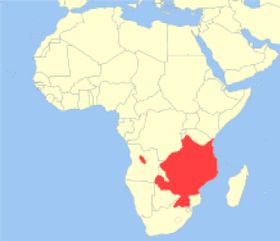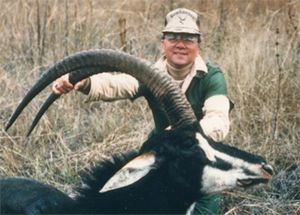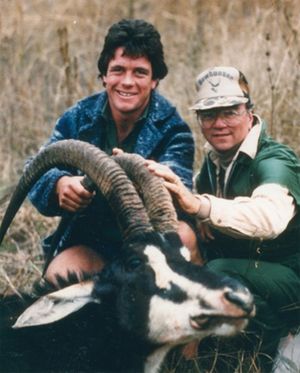28. Sable---Zimbabwe

The sable is a large member of the antelope family found in wooded savannahs in southern
Africa. Both sexes have horns, but the males are much bugger. The females and young
males are brown in color, but the males become black as they age. Males fight for
dominance of a herd, with only one dominant bull per herd. They fight on their knees,
using those long sweeping horns to do serious damage to rivals. When a herd reaches
a certain number (probably 10-20 animals), they split into two herds, each with a
dominant, older bull. Numbers never get large due to habitat limitations.
HUNT DESCRIPTION

The trophy fee for sable antelope is high because of population limits. When I was
in Zimbabwe in 1988, teaching bowhunter education classes as part of the process
to legalize bowhunting there, I was given permission to bowhunt for five days. On
one huge ranch, the owner granted me permission to hunt sable, and on the third day
this huge bull was harvested. At the time it was the world record with the bow.
My professional hunter on this first hunt in Africa was an exceptional man named
Alister Travers. I hunted a second time with him in 1991, and his wife was pregnant
with their second child. I’d learn later that she died in childbirth, but the baby
survived. Tragically, a year later Alister was killed by a cape buffalo that attacked
him and his hunter. Alister tried to save the hunter, but the buffalo then turned
on him and killed Alister. The hunter also was killed. One of the things about bowhunting
in Africa is that lots of things can kill you. They happen rarely, but they do happen.
Most professional hunters have had close life-and-death encounters while hunting.
I lost a good friend in Alister Travers, and he was instrumental in getting bowhunting
legalized in Zimbabwe. This has brought millions of dollars to their rural economy,
created many jobs, and provides most of the money used for wildlife management.
